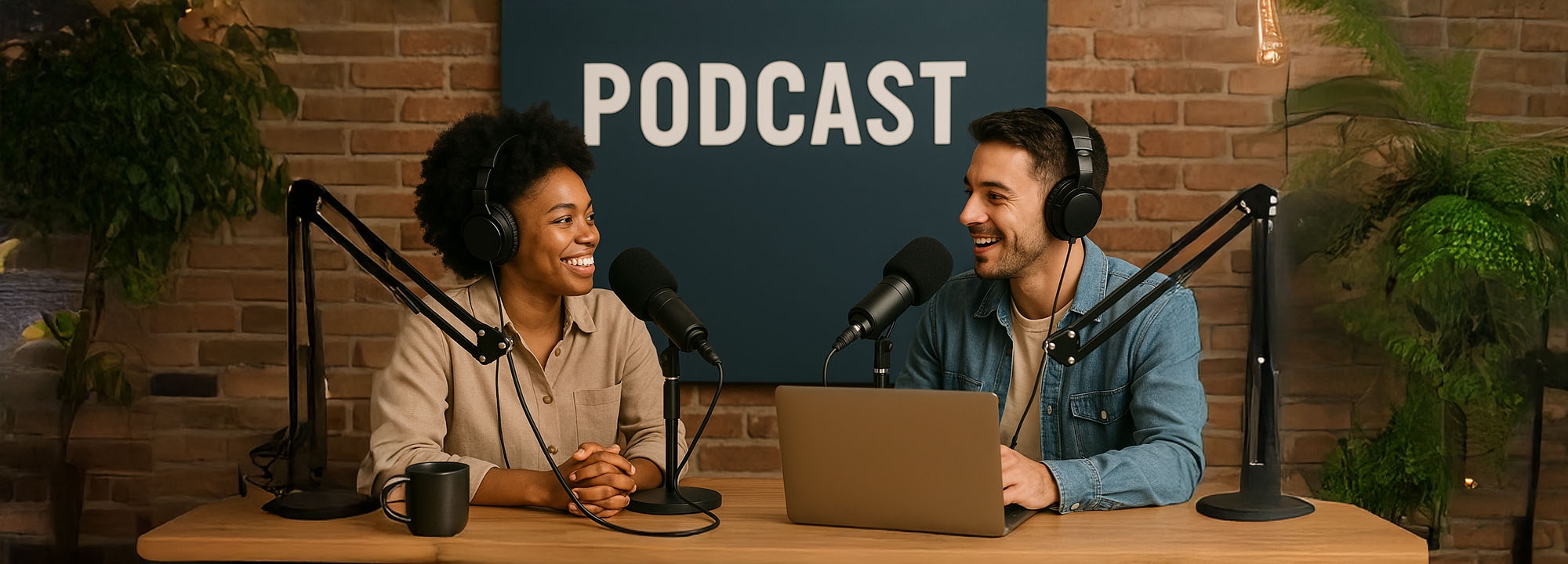Mu the Motherland Podcast .
How to Start a Podcast: A Beginner's Guide to Launching Your Show
Starting a podcast is an exciting journey that allows you to share your voice, stories, and expertise with the world. Whether youre aiming to entertain, educate, or inspire, podcasting offers a platform that continues to grow in popularity. The good news is you dont need a professional studio or a big budget to get started. What you do need is a solid plan, the right tools, and a bit of persistence.
The first step in starting a podcast is identifying your niche. Your niche defines your topic, your target audience, and ultimately the direction of your content. Ask yourself what you are passionate about and what value you can offer your listeners. Popular podcast niches include true crime, business, self-improvement, storytelling, interviews, and more. Finding a unique angle within your chosen niche will help your podcast stand out in a crowded market.

Once youve nailed down your niche, it's time to plan your content. Think about the format of your podcast: will it be solo episodes, co-hosted conversations, interviews, or a mix of different styles? Determine the average length of each episode and how often you will publish new contentweekly, bi-weekly, or monthly. Consistency is key to building and retaining an audience, so create a content calendar to stay organized and maintain momentum.
Next, choose a compelling name and create eye-catching cover art. Your podcast name should reflect your topic and tone, and be easy to remember and search for. Avoid overly complicated or generic names. Once youve settled on a name, design cover art that grabs attention and meets podcast directory specificationsusually a square image of at least 1400x1400 pixels. Your artwork is the first impression new listeners will have, so make it count.
Now its time to gather your equipment. While you dont need the most expensive gear, investing in decent quality equipment will drastically improve your podcasts sound. At a minimum, youll need a USB or XLR microphone, a pair of headphones for monitoring, and a quiet space for recording. Many beginners start with popular budget-friendly mics like the Samson Q2U or the Blue Yeti. For remote interviews, consider using tools like Zoom, Riverside.fm, or SquadCast.
With your equipment ready, you'll need software to record and edit your episodes. Free programs like Audacity or GarageBand are user-friendly and suitable for beginners. If you're willing to invest in more advanced tools, Adobe Audition or Hindenburg Journalist offer more editing power. Learn the basics of audio editingsuch as removing background noise, adjusting levels, and cutting out mistakesto ensure a professional-sounding final product.
Before you hit record, write a script or outline for your episode. Even if your podcast is conversational in nature, having a roadmap will keep your content structured and on-topic. A good episode typically includes an intro, a clear discussion flow, and a closing that encourages listeners to subscribe, leave a review, or visit your website. Practice your delivery to sound natural, energetic, and engaging without being overly rehearsed.

Once your first few episodes are ready, its time to host them online. A podcast hosting platform is necessary to store your audio files and generate an RSS feed that distributes your show to podcast directories like Apple Podcasts, Spotify, and Google Podcasts. Popular hosting services include Buzzsprout, Podbean, Captivate, and Libsyn. These platforms also provide valuable analytics to help you track downloads and listener behavior.
After uploading your episodes and submitting your podcast to directories, start promoting your show. Use social media, email newsletters, and collaborations with other creators to spread the word. Create audiograms or video clips for platforms like Instagram and TikTok. Consider launching with 35 episodes to give new listeners a better sense of your content and encourage binge-listening. Dont be discouraged if growth is slow at firstit takes time to build an audience.
Lastly, engage with your audience. Ask for feedback, respond to comments, and build a community around your podcast. Listener engagement fosters loyalty and can lead to valuable word-of-mouth promotion. As your podcast grows, you can explore monetization options such as sponsorships, listener donations via Patreon, merchandise, or even premium content subscriptions.
Starting a podcast is a rewarding endeavor that blends creativity with technical skills. With clear planning, consistent effort, and a genuine desire to connect with listeners, anyone can launch a successful podcast. Stay authentic, keep improving, and most importantlyenjoy the journey.
